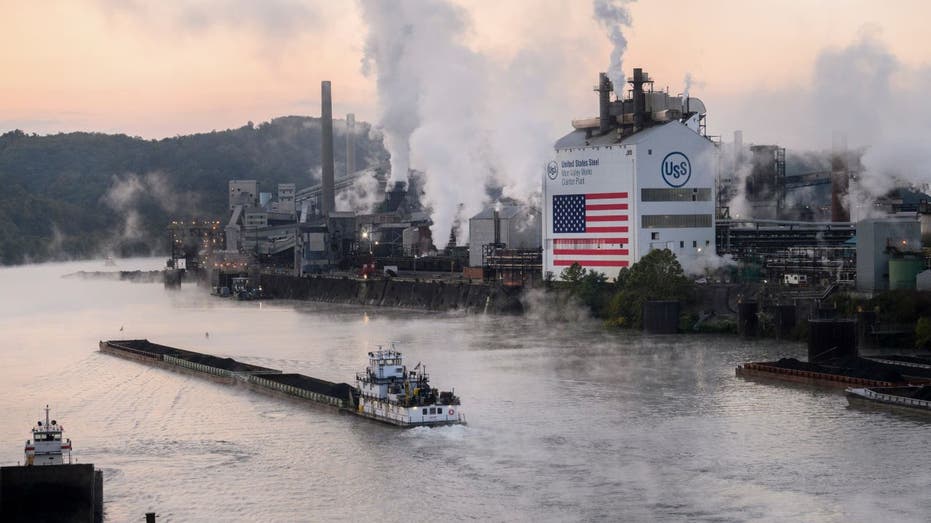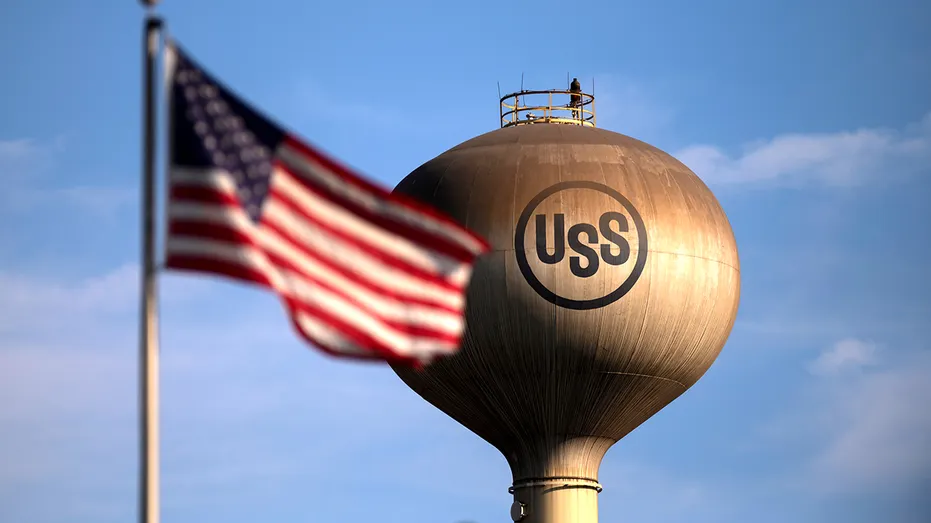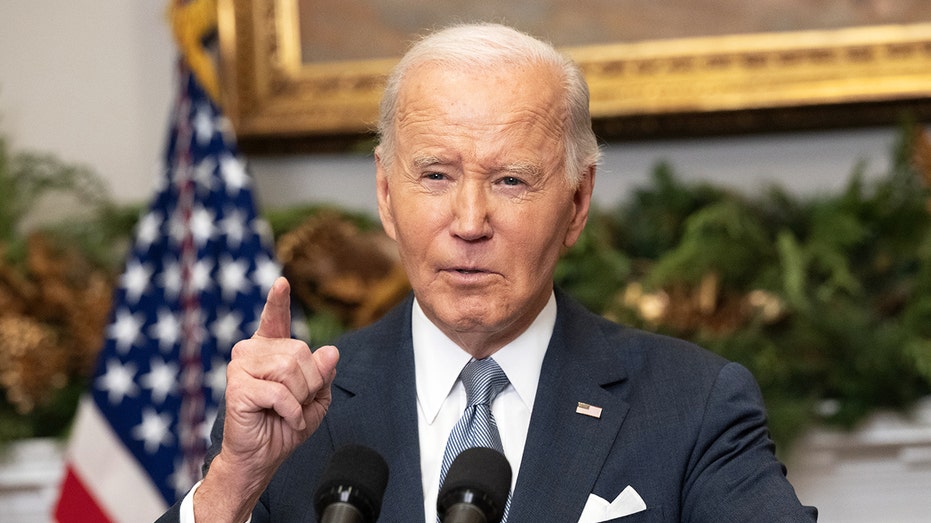O'Leary Ventures Chairman Kevin O'Leary weighed in on the House Speakership vote, President Biden blocking US steel sales and the future of TikTok.
President Biden's The decision to block Nippon Steel's proposed $14 billion acquisition of US Steel was based on national security concerns — an argument that has sparked pushback.
Biden announced the decision on Friday after the Committee on Foreign Investment in the United States (CFIUS) deferred the decision to the president after failing to reach consensus on its review. The president's order cited “credible evidence” that Nippon Steel “may take actions that threaten the national security of the United States” — though the order did not elaborate on those concerns.
In an accompanying statement, Biden explained that “a strong domestically owned and operated steel industry represents an essential national security priority” and added that he “will never hesitate to act to protect this nation and its infrastructure as well as preserve its resilience. Supply chain.”
US Steel and Nippon Steel released a statement condemning the decision Block the deal as “illegal” and said Nippon Steel's commitments would strengthen national security. The companies noted that they have proposed banning any production and job transfers outside the United States, as well as giving CFIUS the power to veto any production cuts at U.S. steel facilities over the next 10 years to assuage concerns about steel supplies and their impact. on national security.
President Biden to stop US steel sales to Nippon Steel

US Steel has warned that it may have to close its facilities if it is acquired by Nippon Steel. (Photographer: Justin Merriman/Bloomberg via Getty Images/Getty Images)
However, they said CFIUS “did not give due consideration to a single proposed mitigation proposal … as evidenced by the absence of any written response to the four strong national security Contracts that the parties actively proposed for more than 100 days ” The companies added that “the CFIES process was deeply tainted by politics, and the outcome was predetermined, without merits investigation, but to satisfy Biden White's political objectives.”
Nippon Steel has pledged to invest at least $2.7 billion to modernize US Steel's Mon Valley Works near Pittsburgh and Gary Works in Indiana to better enable those steel mills to compete with international rivals. US Steel CEO David Burritt said this earlier The Wall Street Journal The company can't do that if the deal falls through because, “I don't have the money.”
The two companies said in statements Friday that they believe the deal is “the best way to ensure that US Steel, and USW-represented facilities in particular, will be able to compete and thrive well into the future.” US Steel and Nippon Steel Added they will “take all appropriate steps to protect our legal rights and secure that future.”
| vaccine | safety | the end | change | change % |
|---|---|---|---|---|
| X | United States Steel Corp. | 32.88 | +2.42 |
+7.96% |
| NPSCY | Nippon Steel Corp. | 6.81 | -0.11 |
-1.55% |
Mike Pompeo defends US steel, Nippon Steel deal, urges Trump to do the same
The decision has been praised by the White House United Steelworkers (USW) Union. USW International President David McCall said Nippon is a “serial trade cheat who has worked to undermine our domestic industry for decades by dumping its products in our markets.”
He added that the purchase would allow Nippon to “destabilize our trading system from within” while reducing “our ability to meet our own national security and critical infrastructure needs.”
“It is clear from US Steel's recent financial performance that it can easily remain a strong and resilient company. We now call on US Steel's board of directors to take the necessary steps to allow it to continue to grow and remain profitable,” McCall said.
US Steel CEO says company will close steel mills if proposed $14B sale to Nippon Steel falls through

US Steel and Nippon Steel have indicated plans to take action to protect their legal rights. (Justin Merriman/Bloomberg via Getty Images/Getty Images)
Scott Lincicombe, VP of General Economics and the Cato Institute's Stifel Trade Policy Center, noted in a blog post that the deal was supported by a Independent Arbitration Panel US Steel and USW, as well as elected by 98% of US Steel shareholders when the deal was voted on.
Note Lincicome The Treasury, State, and Defense Departments concluded that the deal posed no security risk, and many independent experts on national security and foreign policy saw the deal as a way to strengthen national security and ties with Japan's closest allies.
He added that while the companies may ultimately win a legal challenge to Biden's decision to allow the deal to go forward, the president's move “risks damaging the US investment review process; US-Japan relations; the US's position as a welcoming place. Political partisanship and economic Protectionism and foreign investment against using 'national security' to court; unfortunately, none of this will reverse.”
Trump says he will block US steel takeover of Nippon Steel: 'Buyer beware'

President Joe Biden has blocked the deal citing national security reasons. (Ron Sachs/CNP/Bloomberg via Getty Images/Getty Images)
Alexis Earley, a partner at Jenner & Block whose practice includes a focus on CFIUS matters, said in a statement that “the decision appears to be political, tied to Economic securityand unaffected by serious unresolved national security concerns.”
He also noted that the decision could undermine efforts to strengthen ties with close allies that are needed to help counter China's growing influence. Japan is a party to a mutual defense treaty with the United States, and is an important partner in economic and defense initiatives.
“Low-risk foreign investors should think twice before willingly putting themselves through such an arbitrary and unaccountable process,” he added. “As a Pennsylvania steel worker and the daughter of a CFIUS lawyer, I have watched this deal very closely. CFIUS has deviated from its core national security responsibilities by focusing on a subset of economic criticism.”
Get Fox Business on the go by clicking here
Jason Furman, a professor of economic policy at Harvard who chaired the Council of Economic Advisers for most of the time. President Obama In his second term, he also took issue with the Biden administration's decision to block the deal.
“President Biden claiming Japan's investment in an American steel company is a threat to national security is a pathetic and maddened caveat to special interests that will make America less prosperous and safer,” Furman wrote in a post on X. “I'm sorry. He'll look to betray our allies by abusing the law.”